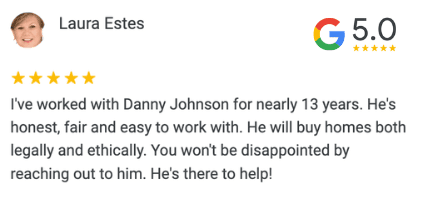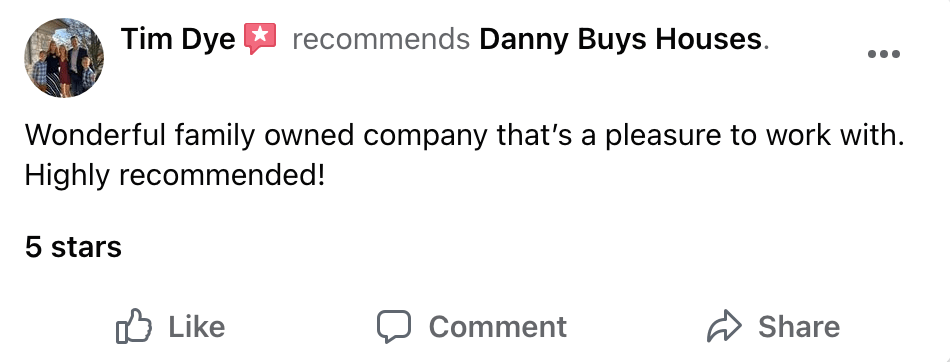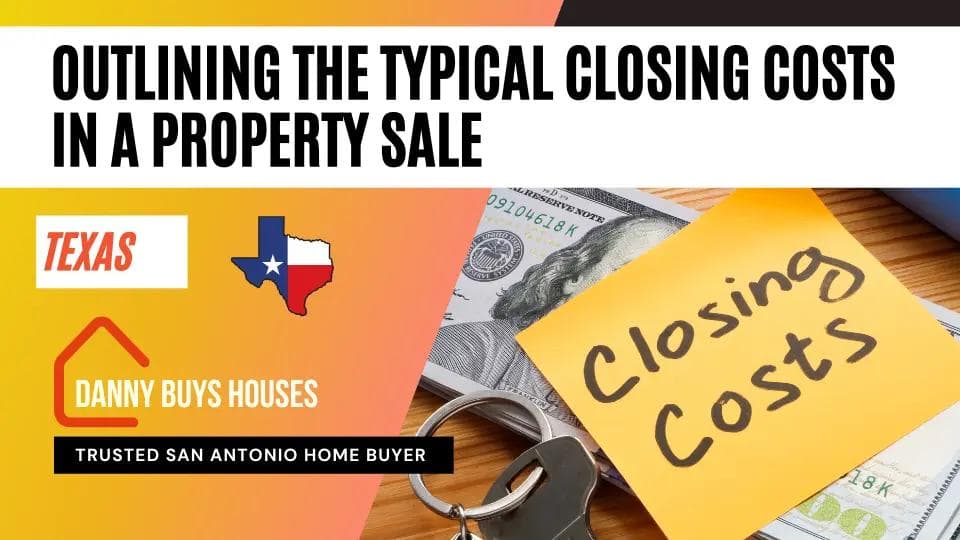
Outlining the Typical Closing Costs in a Property Sale
By Danny Johnson | Updated 3/17/2025, 1:43:46 PM
Discover the typical closing costs in a property sale for both buyers and sellers. Understand what to expect, including average closing costs and mortgage fees.
- Key Takeaways
- Understanding Closing Costs in a Property Sale
- Definition and Basic Concepts
- Why Closing Costs Matter
- Average Percentage of Purchase Price
- Buyer's Share of Closing Costs
- Loan-Related Fees and Charges
- Property Assessment Costs
- Insurance and Tax Requirements
- Third-Party Service Fees
- Seller's Responsibility in Closing Costs
- Real Estate Commission Fees
- Title-Related Expenses
- Transfer Taxes and Recording Fees
- Property-Related Settlement Costs
- Avoid Most Closing Costs By Selling to a Cash Home Buyer
🗂 Table of Contents
Ever wonder why selling your home feels like opening a surprise bill? You're not alone! Many homeowners are caught off guard by the hidden costs of closing a property sale. But don't worry, I'm here to shed some light on these mysterious fees and help you navigate the financial waters of real estate transactions.
As a company that buys houses in San Antonio, we routinely see strange costs added on during closing. It helps to know what is typical so you can negotiate or eliminate unnecessary fees.
Closing costs are a crucial part of any property sale, often ranging from 2% to 5% of the purchase price. These expenses can add up quickly, impacting both buyers and sellers. Understanding these costs is key to financial planning and ensuring a smooth home purchase process.
Did you know that in 2021, the average closing costs for buying a single-family home were $6,905? That's a chunk of change! But here's where it gets interesting: these costs can vary wildly depending on where you live. For instance, homebuyers in Washington, D.C. paid a whopping average of $29,888 in closing costs!
On the flip side, if you're in Missouri, you might breathe a sigh of relief. They boast the lowest closing costs at just 0.8% of the sale price. It's like a real estate rollercoaster across the country!
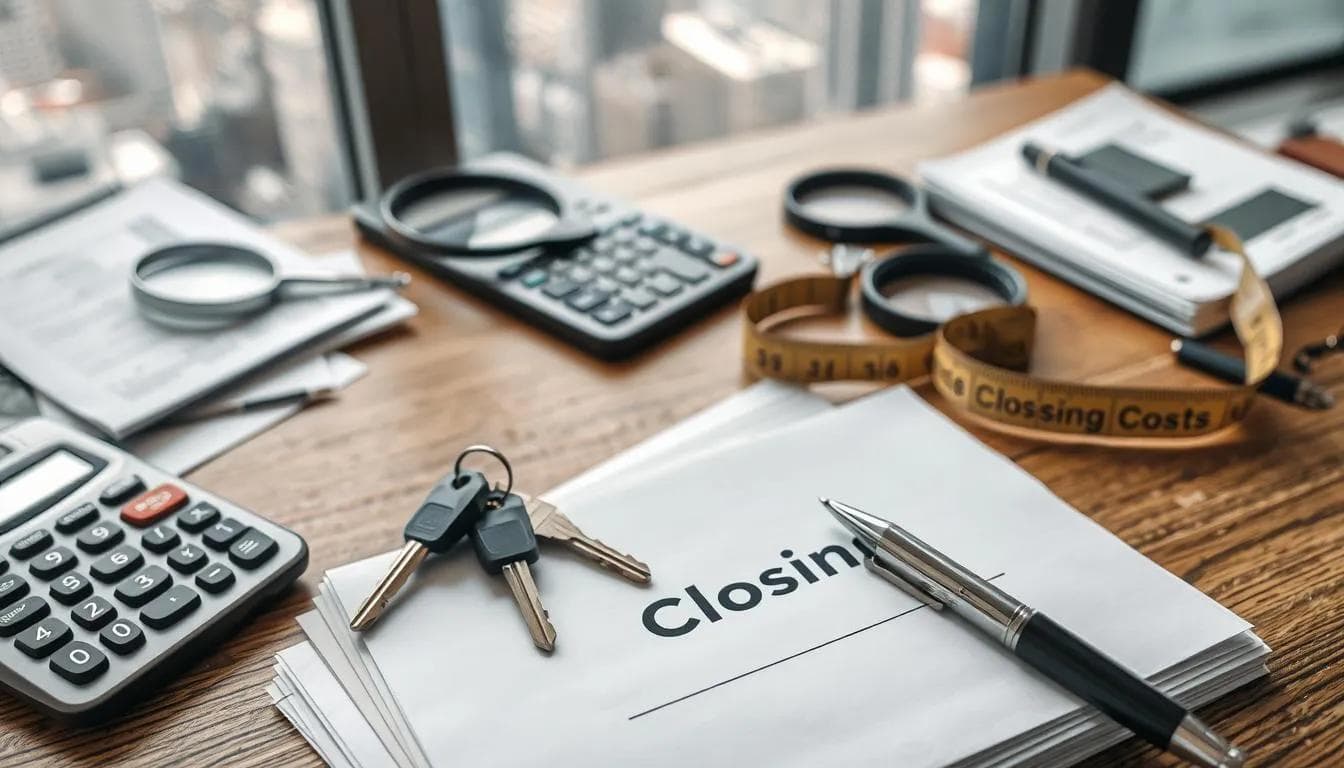
But don't let these numbers scare you off. Knowledge is power in the world of real estate. By understanding what goes into closing costs, you'll be better prepared to handle these expenses when it's time to sell your home. Ready to dive deeper into the world of closing costs? Let's break it down together!
Key Takeaways
- Closing costs typically range from 2% to 5% of the purchase price
- Average closing costs for buying a single-family home in 2021 were $6,905
- Costs vary significantly by location, with Washington D.C. having the highest average
- Missouri has the lowest closing costs at 0.8% of the sale price
- Understanding closing costs is crucial for effective financial planning in real estate transactions
Understanding Closing Costs in a Property Sale
Closing costs are always present when buying or selling a home. They can affect your budget a lot. It's important to know what they are.
Definition and Basic Concepts
Closing costs are fees for finishing a real estate deal. They include costs for the agent, mortgage, title insurance, and more. Everybody wants a piece of the pie!
These fees help transfer the property, buyers obtain a mortgage, and any taxes the county requires.
Why Closing Costs Matter
Knowing about closing costs helps you budget for buying or selling a home. In Texas, buyers might pay 2% to 6% of the home's price. Sellers could pay 6% to 10%.
For a $307,038 home, buyers could pay $6,140 to $18,422. Sellers might pay $18,422 to $30,700.
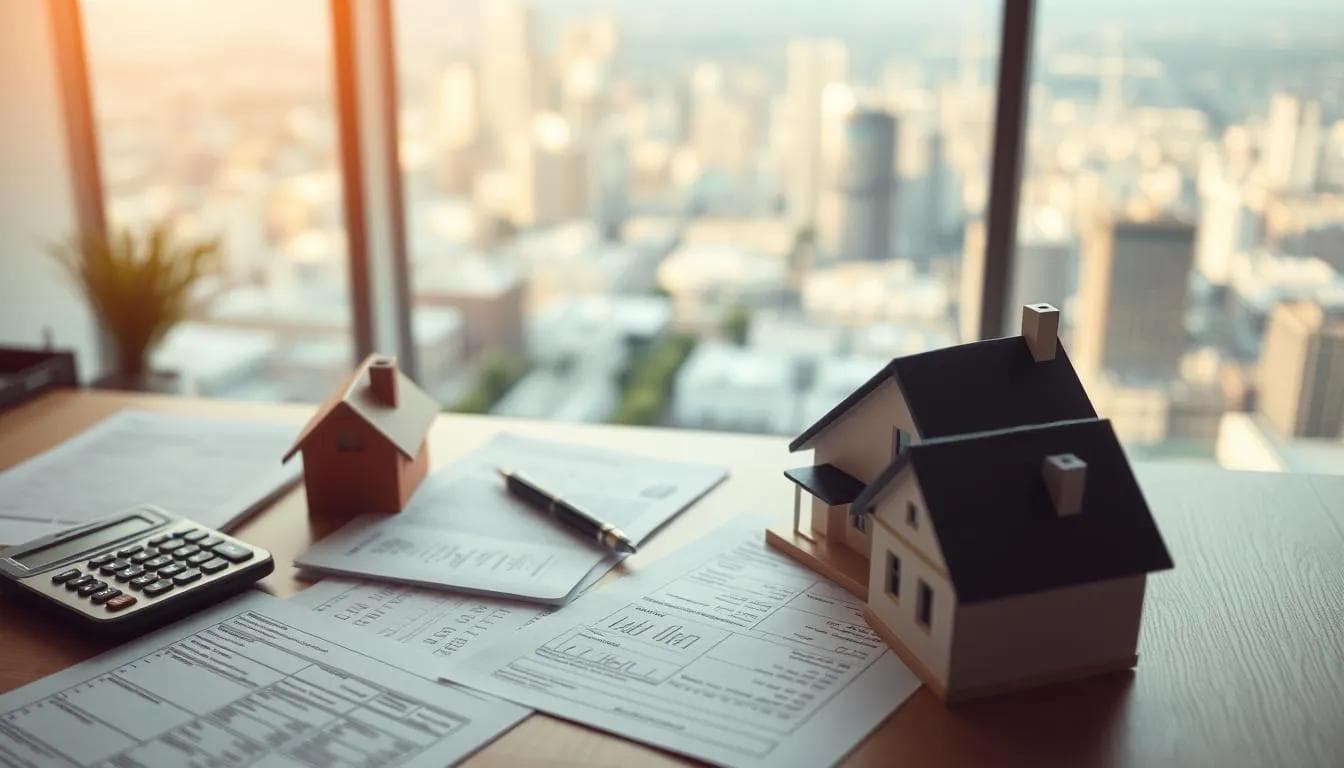
Average Percentage of Purchase Price
The biggest cost for sellers is often the agent's commission, about 6% of the sale price.
Other big costs are loan origination fees, title insurance, and transfer taxes.
- Loan origination: About 1% of loan amount
- Appraisal: $425 on average
- Title insurance: $1,000 to $3,000
- Home inspection: $300 to $500
Closing costs can change based on location, property value, and market conditions. In a buyer's market, sellers might pay more. In a seller's market, buyers might offer to pay some of the seller's costs to make their offer better.
Buyer's Share of Closing Costs
When you sell your home, knowing what buyers pay for closing costs is key. These costs can change how much they offer and the final price. Let's look at the main costs buyers usually cover.
Loan-Related Fees and Charges
Buyers deal with many loan-related fees. The origination fee, which is 0.5% to 1% of the mortgage, is a big one. Their credit score affects their interest rate. If they put down less than 20%, they'll need mortgage insurance.
Property Assessment Costs
An appraisal fee, about $500 for single-family homes, is common. It checks if the property's value matches the loan. Buyers also pay for title searches to make sure the property is theirs.
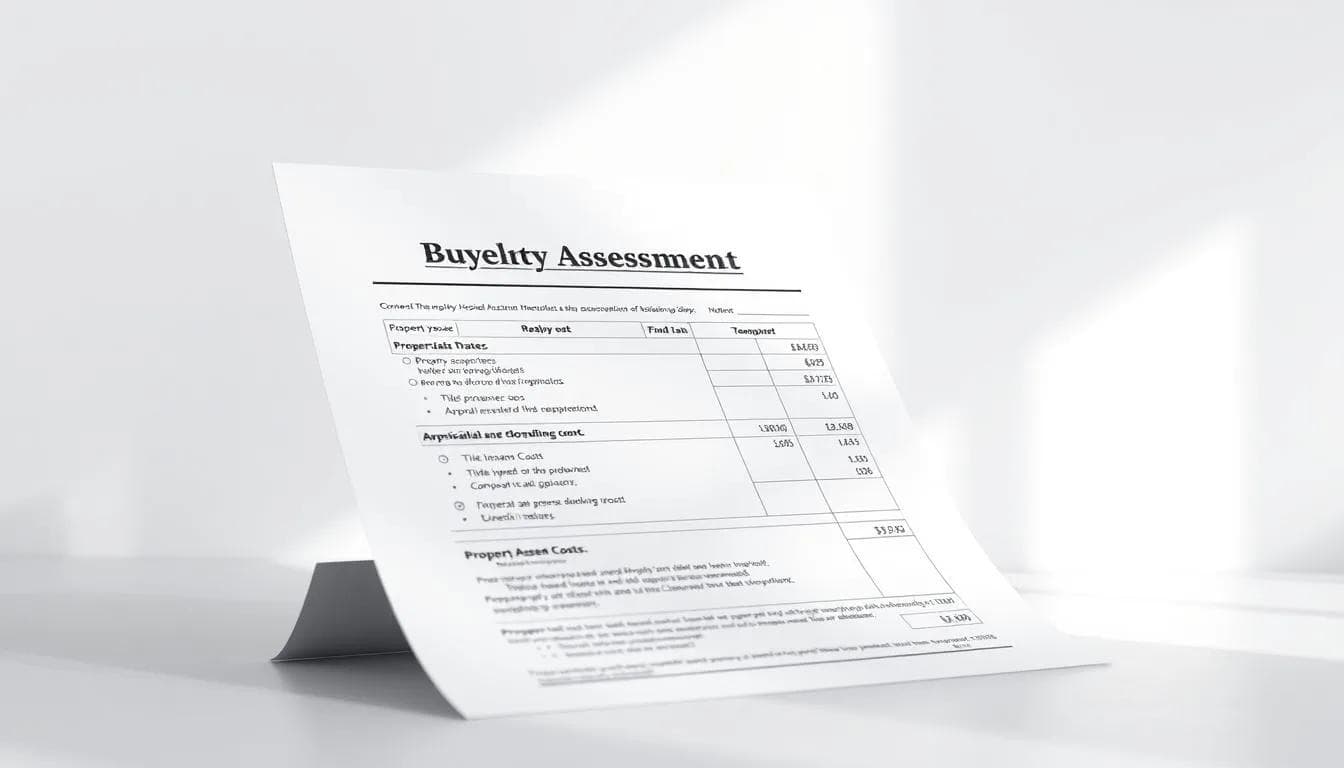
Insurance and Tax Requirements
Buyers must get home insurance before closing. They also pay property taxes from then on. A big part also goes to insurance and taxes.
Third-Party Service Fees
Buyers also face other fees like credit report costs ($30-$50) and escrow fees. Escrow fees can be a flat rate of $500-$2,000 or up to 1% of the purchase price. These fees are often split between buyer and seller.
Knowing these costs helps you negotiate better. Some buyers might ask for seller concessions to help with these costs. This could affect your profit.
Seller's Responsibility in Closing Costs
Selling a home comes with expenses. Let's break down these costs to help you prepare for your home sale.
Real Estate Commission Fees
The biggest chunk of your closing costs will likely be the real estate commission. This fee typically runs about 6% of your home's sale price, split between your agent and the buyer's agent. For a $350,000 home, that's $21,000 in commission fees. Ouch!
Title-Related Expenses
Title insurance is another significant cost. It usually ranges from 0.5% to 1% of the sale price. In some areas, sellers are expected to purchase this insurance for the buyer. It's wise to check local customs to understand your obligations.
Transfer Taxes and Recording Fees
Transfer taxes can cost between 1% to 3% of your sale price. You'll also need to pay recording fees to document the sale. These costs vary by location, so check with your local government for specific rates.
Property-Related Settlement Costs
Don't forget about prorated property taxes and HOA fees. You'll need to cover these up to the closing date. You might also consider offering seller concessions or a home warranty to sweeten the deal for buyers. Just remember, concessions may be limited based on the buyer's loan type.
Selling a home in Florida? Closing costs in Florida average 2.3% of the home's sale price. That's about $9,416 for a median-priced home. Keep this in mind as you plan your sale.
Remember, these costs can add up quickly. For a $400,000 home, you might pay between $32,000 and $40,000 in closing costs. Plan ahead and budget wisely to ensure a smooth selling process.
Avoid Most Closing Costs By Selling to a Cash Home Buyer
Want to skip the hassle of closing costs? Selling to a cash home buyer might be your ticket to a quick sale with reduced expenses. These buyers offer a simplified process that can save you time and money. With no agent fees and an as-is sale, you can avoid many traditional closing costs.
Cash buyers typically close fast, often within 10 days. This speedy process means you won't have to worry about higher prorated property taxes or HOA fees.
Remember, while cash offers might be lower than traditional sales, the lack of repairs needed and reduced closing costs can offset the difference. If you're looking for a no-fuss, fast closing with minimal costs, a cash home buyer could be your best bet.
Give Danny Buys Houses a call if you want to sell a house fast in San Antonio, TX or surrounding areas.
Frequently Asked Questions
In this section we will answer the most common questions to typical closing costs in a property sale
What are typical closing costs in a real estate transaction?
Typical closing costs include fees for the loan origination, appraisal, title search and insurance, survey, taxes, deed recording, and notary services. They can also include pre-paid expenses like homeowners insurance and property taxes.
How much do closing costs usually amount to as a percentage of the sales price?
Closing costs typically range from 2% to 5% of the property’s sale price.
Who is generally responsible for paying closing costs in a property sale?
Both buyers and sellers incur certain closing costs. Buyers often cover loan-related fees while sellers may pay agent commissions and transfer taxes. However, who pays what can be negotiated during the sale process.
Can closing costs be rolled into the mortgage or financed?
Yes, some lenders allow buyers to roll their closing costs into the mortgage balance, which increases the total loan amount but reduces upfront cash requirements.
Are there any ways to reduce or negotiate lower closing costs?
Yes, buyers can shop around for better rates on services like title insurance and home inspections. Negotiating with sellers to cover part of the costs or asking lenders about discounts for loyalty or bundling services may also help reduce expenses.

AUTHOR
Danny Johnson
Owner and Founder at Danny Buys Houses
Danny Johnson is an experienced real estate investor who has been buying houses for cash since 2003. As owner of Danny Buys Houses, Danny's goal is to help homeowners sell their house fast, regardless of the situation, so they can move on with their life.
Danny has been featured in publications such as Forbes, Realtor.com, BiggerPockets, Yahoo Finance, US News, and more. He is also the author of the book 'Flipping Houses Exposed'.


